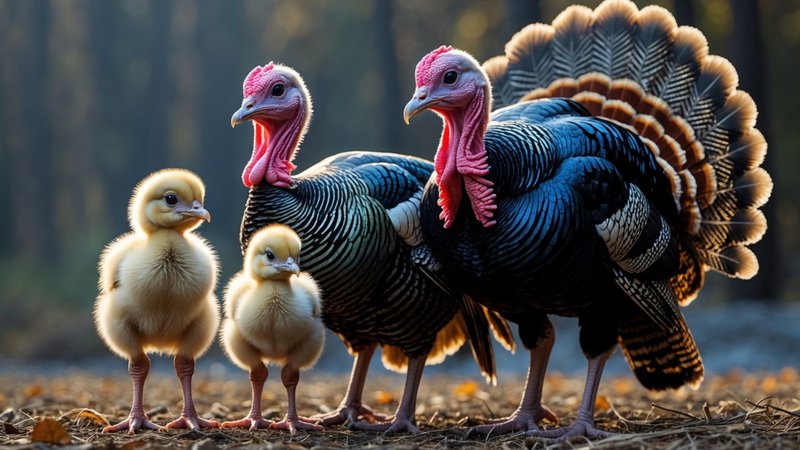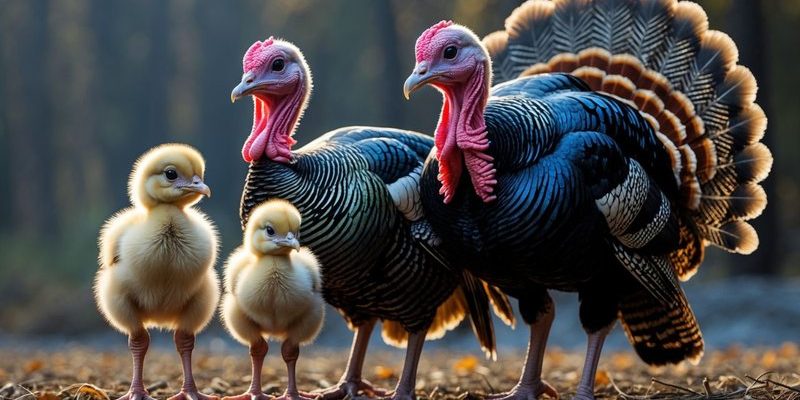
Here’s the thing: raising a turkey doesn’t have to be daunting. With the right guidance, you’ll find it’s a lot like nurturing any other pet or livestock. From understanding their needs to providing proper care, you can turn your turkey-raising experience into a rewarding journey. So, grab your coffee, get comfortable, and let’s dive into the ins and outs of turkey care!
Choosing the Right Turkey Breed
When starting your turkey-raising adventure, one of the first decisions you’ll make is which breed to choose. Turkeys come in several breeds, each with unique traits. For beginners, the Broad Breasted White is popular. These turkeys grow quickly and are often used for meat production. If you’re more interested in a heritage breed that can roam around and live longer, consider the Narragansett or Royal Palm.
You might wonder, why does breed matter? Well, different breeds have different temperaments and care needs. For instance, heritage breeds are generally more active and require more space to roam. On the flip side, commercial breeds grow faster but often don’t have the same lifespan. Ultimately, your choice will depend on your goals—whether it’s a fun pet or a hearty meal.
Setting Up Your Turkey Home
Once you’ve chosen your turkey breed, it’s time to create a cozy home. Turkeys need a spacious area to move around, ideally with both indoor and outdoor spaces. A good rule of thumb is to allow 6 to 10 square feet per turkey inside the shelter. This keeps them comfortable while minimizing stress.
For the shelter, a simple coop or barn works well. Make sure it’s well-ventilated and predator-proof, as turkeys can be vulnerable to raccoons, foxes, or even neighborhood dogs. Inside, include nesting boxes filled with clean straw to encourage comfortable laying areas for hens.
Outdoor space is just as crucial. Turkeys love exploring! A fenced yard or a secure run gives them the freedom to wander, peck at the ground, and soak up the sun—just like kids at a park.
Feeding Your Turkeys Right
Okay, so you’ve got your turkey and its home set up. Now, let’s talk food! Proper nutrition is essential for their growth, health, and egg production. Generally, turkeys have three main feeding stages: starter, grower, and finisher.
– Starter Feed: For the first few weeks, provide a high-protein starter feed, typically containing 28% protein. This helps them grow strong and healthy.
– Grower Feed: After about 8 weeks, switch to grower feed with around 20% protein. This will support their development as they grow.
– Finisher Feed: When they’re nearing the 4-5 month mark, switch them to finisher feed, which has around 18% protein. This prepares them for the final stages before processing.
Make sure to always provide fresh water. Turkeys can drink a lot, especially in warmer weather, so keep their water source clean and accessible.
Health Care and Common Issues
Caring for your turkey means keeping an eye on their health, too. Turkeys can be prone to a few common health issues, such as respiratory problems or parasites. Here’s how to keep them healthy:
– Watch for Signs of Illness: Look for signs like lethargy, unusual droppings, or coughing. If your turkey seems off, consult a vet who specializes in poultry.
– Vaccination: Consider vaccinating your turkeys against common diseases. Speaking with a vet will help you understand which vaccines are right for your birds.
– Parasite Control: Routine checks for mites or worms are essential. There are several natural and chemical treatments available, so find what works best for your situation.
Keeping a clean living space is vital as well. Regularly clean the coop and change the bedding to avoid infections and keep your turkeys happy.
Socializing and Handling Your Turkeys
Turkeys are social creatures, and they thrive in the company of their flock. If you have just one turkey, it might get lonely. Consider raising at least a pair to keep them company. They can be quite affectionate, and proper handling helps them bond with you.
Start handling them gently from a young age to help them feel comfortable. Remember, turkeys are naturally curious and can be skittish, so approach them calmly. You can even train them to recognize your voice or follow you around, much like a dog!
Spending time with your turkeys will not only help them feel secure but also allow you to monitor their health and behavior more easily.
Preparing for the Big Day
If you’re raising turkeys for food, you might be wondering how to prepare for processing day. It’s a sensitive topic, but here are some key points to consider:
– Timing: Most turkeys are ready to process anywhere between 4 to 6 months. This will vary based on the breed you chose.
– Processing: Many people choose to process their turkeys at home, but it requires careful planning. If you decide to do this yourself, ensure you have all the necessary equipment and follow humane practices.
– Consult Resources: Don’t hesitate to seek out guides or even watch videos on processing to feel more prepared for the day.
Remember, while it’s a significant step, the effort you put into raising your turkey means a lot. It’s all part of the rewarding cycle of responsible farming.
Raising a turkey can be a delightful experience, full of learning and interaction. From choosing the right breed to ensuring proper care and feeding, each aspect contributes to a healthy, happy turkey. Whether you’re aiming for a loving feathered friend or a holiday feast, the key is to approach it with patience and consideration.
So go ahead, embrace your turkey-raising journey! You’ll find that with some dedication and love, you can turn this adventure into something truly rewarding. Plus, who wouldn’t enjoy some fresh turkey at Thanksgiving? Happy turkey raising!

